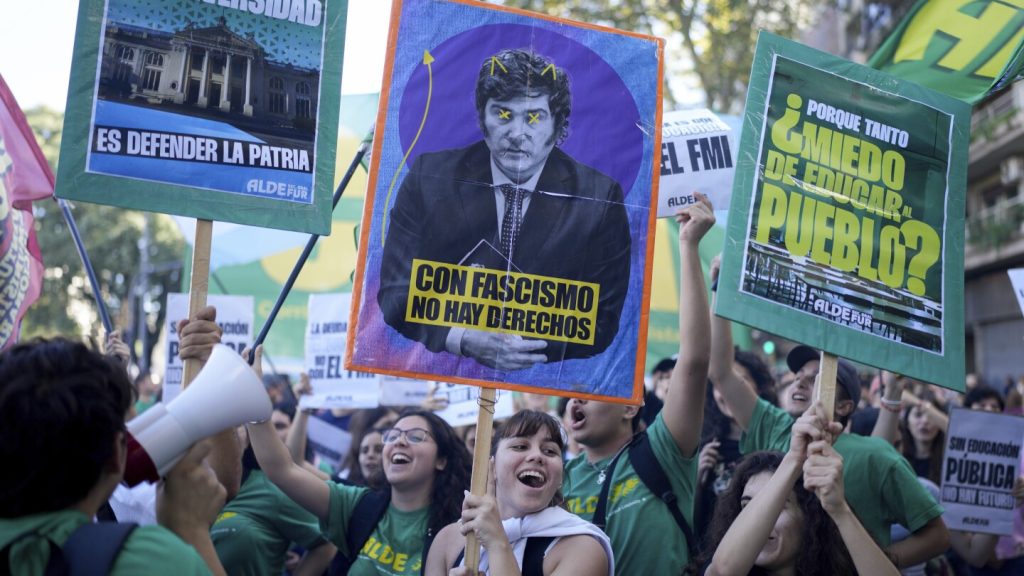Hundreds of thousands of Argentines took to the streets of Buenos Aires and other cities in a massive demonstration demanding increased funding for public universities in response to President Javier Milei’s harsh austerity measures. The protest, coordinated by students, professors, trade unions, and leftist political parties, aimed to push back against budget cuts that have pushed Argentina’s most prestigious university, the University of Buenos Aires (UBA), to declare a financial emergency. Even conservative politicians, private university administrators, and right-wing TV personalities joined the march in support of public education in Argentina.
Milei has dismissed the university budget crisis as a political issue, accusing universities of being bastions of socialism where professors indoctrinate their students. However, the crisis has become evident at UBA, where the lack of funding led to issues such as darkened halls, frozen elevators, and non-functional air conditioning. Professors have been forced to teach large lectures without essential resources, highlighting the severity of the situation. Milei’s austerity measures, aimed at reaching a zero deficit, have led to widespread spending cuts across Argentina, impacting various sectors such as ministries, cultural centers, and state workers.
The scale of the protest reflects the deep concerns of students and professors over the future of public education in Argentina. With inflation soaring and the university receiving only a fraction of its budget, the UBA warned of a potential shutdown in the coming months, affecting hundreds of thousands of students. The significance of free and quality university education in Argentina, considered a birthright by many, has been emphasized by the proud intellectual tradition of UBA, known for producing Nobel Prize winners and presidents. Students and protesters are determined to show the government that education is a fundamental right that cannot be taken away.
President Milei, who came to power inheriting an economy in crisis, has defended his budget cuts as necessary to achieve economic stability. However, the impact on public education has sparked widespread unrest and opposition from various sectors of society. The government’s pledge to provide funding for maintenance costs and medical centers at public universities has been met with skepticism by university authorities who believe it falls short of what is needed. In the face of declining salaries for teachers and staff, the education system in Argentina is facing a severe crisis that threatens the future of higher education in the country.
As the protests continue and the government claims economic success, the debate between Milei’s austerity measures and the need for public education in Argentina intensifies. The future of universities like UBA, which have played a vital role in the country’s social progress, hangs in the balance as students, teachers, and workers fight to preserve their right to education. The clash between Milei’s economic policies and the fundamental importance of public education in Argentina underscores the ongoing struggle for a better future for the country.


